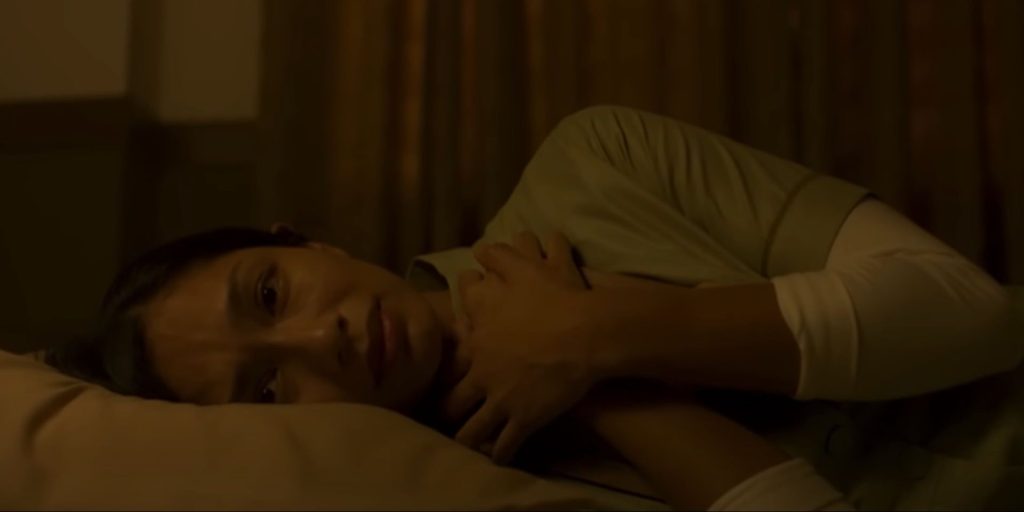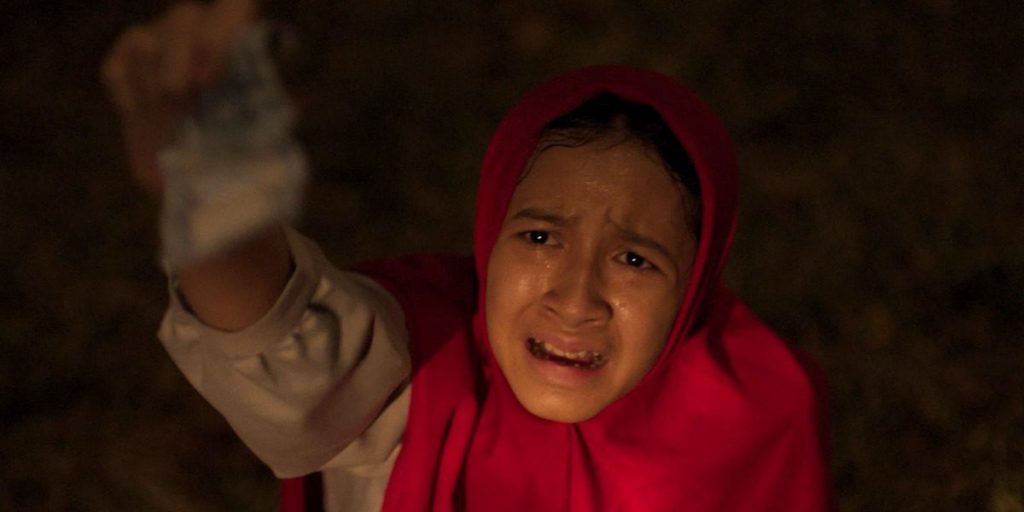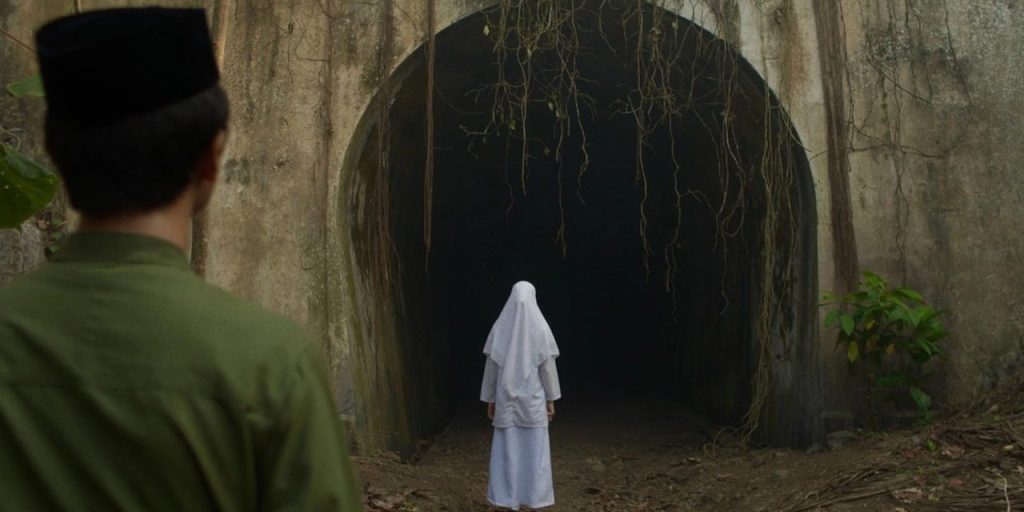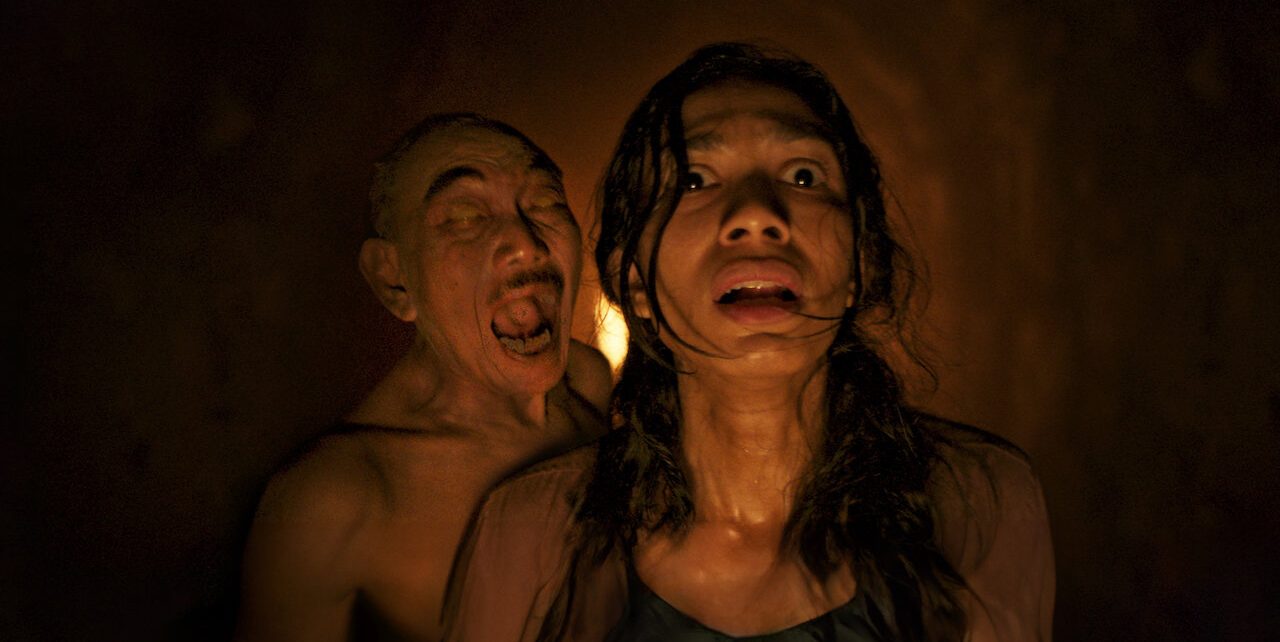The Indonesian horror film, ‘Grave Torture’ follows a sibling duo who lose their parents in a suicide bombing incident outside their family’s bakery. After being orphaned, the younger sister, Sita, embarks on a quest to prove that the notion of grave torture – suffering inflicted on sinners in the afterlife – is an artificial idea seeded by religious fearmongers. However, her agnostic principles are challenged by a catalog of mysterious and inexplicable events that only cause further panic among the population. Meanwhile, her brother, Adil, suffers through a series of problems of his own, rooted in the brother-sister duo’s tragedy-ridden past.
Directed by Joko Anwar, the Netflix film dives into the intersection of religious anxiety and the day-to-day struggles of human beings navigating trauma, guilt, and questions of faith. The story presents a mystical society being viewed through a rational lens, which creates a dichotomy between those who believe in divine power and those who don’t. In doing so, it raises pertinent questions about societal and collective fears surrounding spiritual beliefs and how they can inform people’s worldviews, making the psychological horror movie’s inspirations a worthwhile topic of discussion. SPOILERS AHEAD.
Grave Torture is an Exploration of an Islamic Afterlife Belief
‘Grave Torture’ is a fictional story penned by writer and director Joko Anwar that delves into the concept of grave torture – the belief of afterlife torment reserved for the sinners in society – based on his 2012 eponymous short film. Originally titled ‘Siksa Kubur,’ the movie’s idea had been festering in Anwar’s mind for a long time. Over the years, the filmmaker has made a name for himself as an influential figure in the Indonesian horror industry, owing to past successes. However, in the Netflix movie, he wished to highlight the complex dynamics between the deeply spiritual beliefs held by Indonesian people around the country and the uncomfortable questions that arise from a critical angle.

The director wished to respectfully examine the nuances through a focus on the specific idea of grave torture. In an interview, Anwar stated, “The concept of grave torture does not exist in other religions – it is uniquely Muslim. Muslims believe that, when you die, you will be questioned by two angels about your life. If you don’t do well, you will be tortured in your grave.” The anxiety-filled notion of afterlife judgment drives the horror in ‘Grave Torture.’ The film’s protagonist fights for an alternate viewpoint, seeking to dismantle the arguments laid down by religious texts as they feed into the trauma she suffered as a young kid. However, the battle only leads her into murky swamp waters where even more questions rear their heads.
Religious Panic Forms the Core Horror Conceit of Grave Torture
In ‘Grave Torture,’ religion plays a pivotal part in not only informing the themes of the narrative but also partly forming its backdrop. Questions of faith, morality, ethics, and justice intertwine with one another as profound matters come to the fore. “We tried to treat the topic with the greatest respect and not disparage anyone,” Joko Anwar said. “We were just throwing out questions and hoping that there would be a discussion. We wanted the film to be an experience that led to reflection.” The director also acknowledged that for most Indonesians, horror is more often than not rooted in religious matters as most of the population is brought up on spiritual texts from a young age.

Therefore, the core tenet of the movie revolves around a bubbling insurgency against strict religious beliefs. Anwar explained further, “I wanted to examine the relationship between religion and people. Since I was a child, I have had questions about belief and religion, which I tried to explain to the audience through these characters. Teachers at religious schools use religion as their identity, so I wanted to ask the question: Why are they doing that then?” The central characters have most of their underlying issues rooted not just in their personal lives but also in their deep-stated faith or lack of one.
The Abuse Depicted in Grave Torture is Based on Real Issues in Indonesian Society
One of the key plot points in ‘Grave Torture’ revolves around the rape of Adil, the brother of Sita. During their stay at an Islamic boarding school, known as Pesantren natively, Adil is raped by the school’s wealthy owner, Mr. Ilham Sutisna. Joko Anwar weighed in on the matter by saying, “The theme of abuse at religious institutions was based on a very relevant issue in Indonesia.” Cases of sexual abuse have been a significant concern for the Indonesian authorities over the past few years as disturbing reports have been brought to the fore. The movie reflects these grave concerns through one of the main characters. In many ways, it is a reminder of the fact that, more often than not, the most horrifying things in life are not real demons but monsters who look like people.

Thus, an eclectic mix of terrorist attacks, religious beliefs, and sexual abuse cases formed the central inspiration for ‘Grave Torture,’ presenting a complex but thought-provoking horror movie. As such, the Joko Anwar directorial manages to tether its heightened supernatural aspects in the dark, shifty dynamics of the real world and people’s deep-lying concerns about where everything is heading.
Read More: Grave Torture Ending, Explained: What Happens in Wahyu’s Grave?


You must be logged in to post a comment.